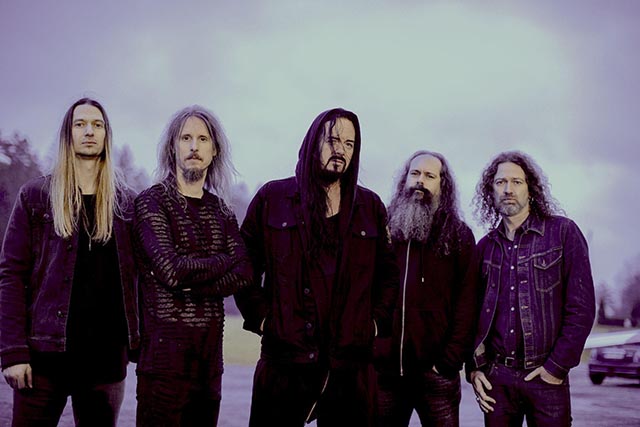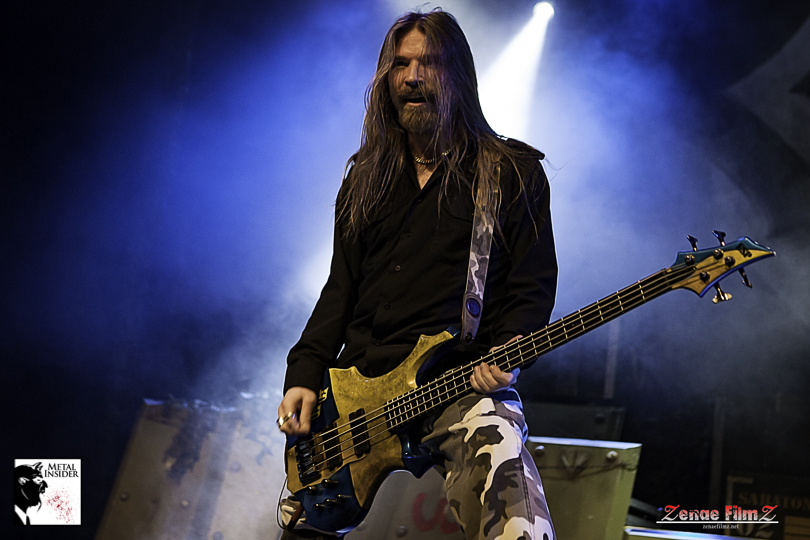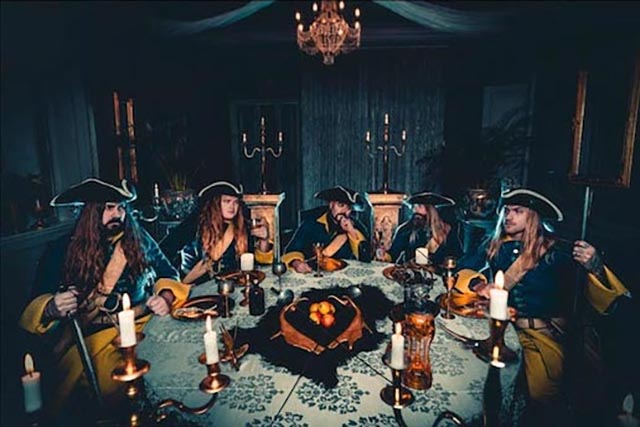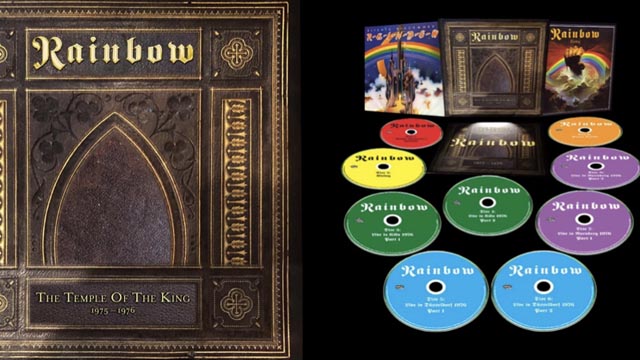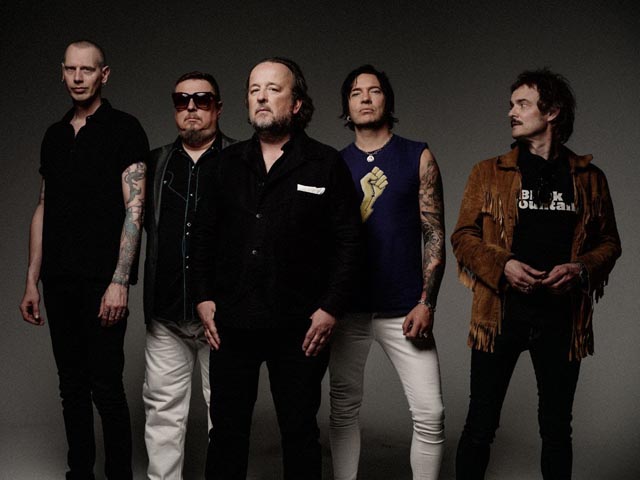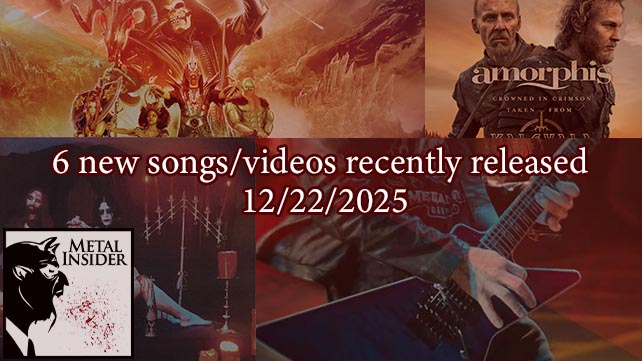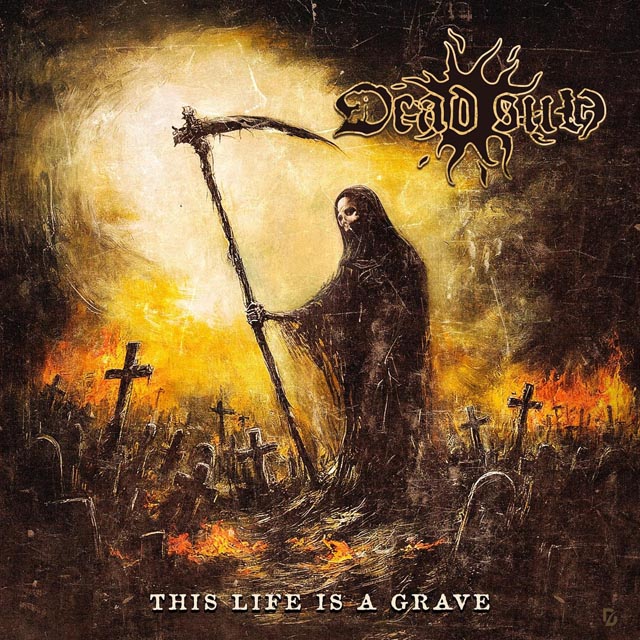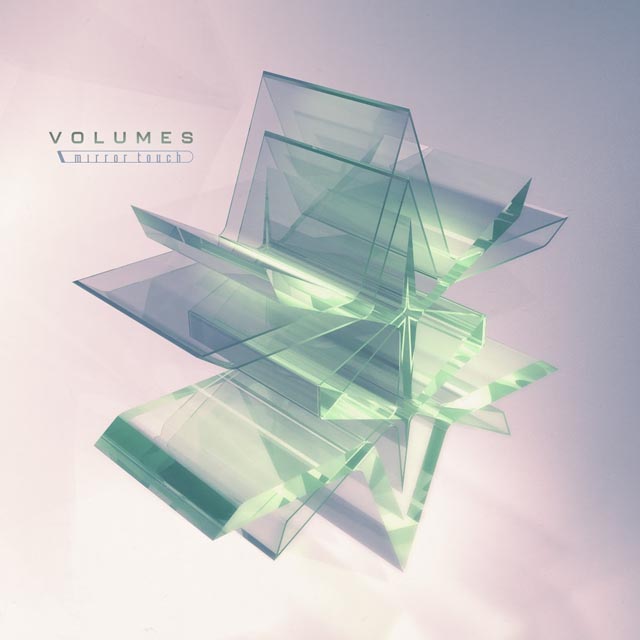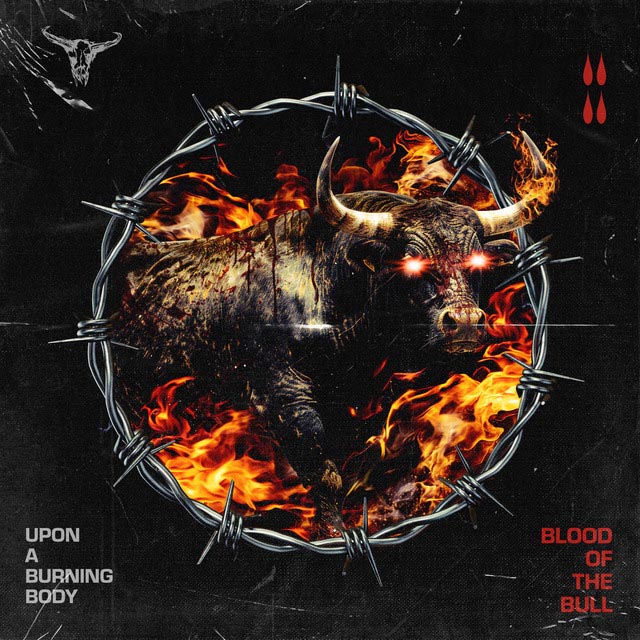
If you’re not worshipping at the six-string altar of one Thorbjorn “Thobbe” Englund, you’re missing out on some shred-tastic (yes, shred-tastic – I did indeed go there) old-school metal meltdown. The Swedish guitarist, best known for handling co-lead guitar duties in Sabaton from 2012-2016, has had a professional career that’s seen him accrue a discography with Swedish power metal mavens Winterlong and Star Queen since the early 2000’s, along with several solo albums – the latest being Sold My Soul, set for international release on February 24th (and in North America on March 10).
Englund’s departure from Sabaton in the Summer of 2016 was a bit of a shock, considering he’d already recorded that band’s latest album, The Last Stand, which had not yet been released. However, in a pleasant reversal of classically grim rock ‘n roll fallout, Englund not only continues to be on the best of terms with his ex-bandmates (he’s set to perform with his solo band at Sabaton’s Open Air Festival held in Falun, Sweden in August of 2017), he actually recommended his replacement in Sabaton – guitarist Tommy Johansson.
While Sabaton fans may have been dismayed to see Englund exit the band, it’s becoming increasingly clear that his steeping away from Sabaton is re-routing his path to explosive musical enlightenment. On Sold My Soul, we see a Thobbe Englund brimming with confidence – handling not only all guitars, but lead vocals as well – Google Sabaton’s cover of Judas Priest’s “All Guns Blazing” and you’ll hear a monster set of pipes. Yes, that’s actually Englund on lead vocal, not Rob Halford.
The new solo album takes the listener through varying shades of metal majesty, drawing on the analog-like hammer of great moments you’d expect to hear on Accept’s Restless and Wild, or even Metal Church’s debut. There are some decidedly atmospheric, Sabbath-laced doom elements in play as well, even leaning towards some early Mercyful Fate melodic twists. In short, Englund’s vision is clear, decisive, and emboldened to not subscribe to any safe musical space – he’s willing to take it on the chin if it didn’t all work out. Metal Insider caught up with Thobbe Englund recently to talk about Sold My Soul, his time with Sabaton, and what makes him tick, musically.
Thobbe, each of your solo albums have been very unique. From The Wilderness was instrumental, and Before the Storm was more of a concept-type album with more traditional metal feel. It seems Sold My Soul is again a departure, with some great old-school Priest and Accept vibes to it. Tell me about writing and putting this new album together – did you plan on it being noticeably different from previous albums?
Yes. As a matter of fact I deliberately set out to go back in time to the days of the older metal bands, like Priest, etc. I came to a point where I asked myself what really got me into metal as a kid and the conclusion was that it had little to do with perfect auto-tuned vocals, massive choirs, drum machine-accurate percussion and so on. I went for the basic sound and feel of heavy metal and the thing that attracted me as young – it was the attitude, the roughness, the danger and the unpolished mix. A feeling of the artists really played and sang for real. Honesty I guess.
All of your solo albums have also been very different from what you did in Sabaton – with music very much driven by keyboards and guitar that sort of followed the keys. What was the best part of Sabaton for you, musically? What made your years with the band memorable?
The best parts with Sabaton musically, for me, must be that we all came from the same influential corners of metal. It was easy to talk music, write together and to find a common theme or idea. Especially me and Joakim are very much alike when it comes to composing. I come from the same background there where Deep Purple and Rainbow, Sabbath, Malmsteen etc., has had a big influence on me, and so does Joakim. We both love the Phrygian modes breaking off here and there, and stuff like that. What made my years memorable with Sabaton? Whoa… I honestly don’t know where to start. I really love these guys, and we’ve had so much fun over the years. It’s basically impossible to answer. All was memorable.
A lot of people may not realize what a powerful vocalist you are. I actually didn’t realize that was you on the cover of “All Guns Blazing” on the last Sabaton album. A lot of guitar players I talk to speak of their confidence as a vocalist being something that is slow to develop. How do you feel about being the lead vocalist as well as the guitar hero – was it tough to meld the two together?
Thank you very much! Yes, I’ve heard people, journalists, asking the boys how it came about that Rob Halford decided to join in on a cover of his own song… hahaha, that’s just so flattering but even though I feel very proud of my vocals on ”All Guns Blazing” I must confess that nobody really can come close to Rob. He’s really unique.
I started to develop my voice maybe ten years ago when I said, “Ahh, screw this, let’s rock.” I was tired of not being able to ”dare” to express my lyrics with the voice I had in mind when I wrote songs, and the thing with hiring a vocalist just didn’t feel honest. I guess it worked, and now I am frontman, singer, guitar player and band leader. It’s of course a bit different from just playing guitar. The thing is that you’re obviously not as free to move around anymore since you’ve got to stay in front of the microphone most of the time… but it’s so much fun.
What kind of a songwriter are you – do you have riffs laying around that you work into songs; do you imagine a certain melody? What’s this process like for you?
I am very afraid of locking myself inside a certain way of writing. Therefore I usually change my ways of writing, so for one song it can start with a riff and the next one it can be a vocal line, a melody coming into my head, keyboards, whatever. If you lock yourself in, and only write with the guitar in focus I believe that you might limit yourself musically.
I mention melodies, because they seem very important to you as a musician. You’re able to shred very well, but you also harness that shredding into great melodic control as well.
Thanks a lot! Yes, I think melodies are very important. For sure if you slow down a super-fast shred solo you will perhaps be able to pick out melodic patterns here and there, but shredding and playing fast patterns is often limited to the ears of other guitar players unless it’s a very suitable thing for the song or solo. I also don’t like to get too lost in fast playing, so it’s very important to have a leading melody. I think it was B.B. King who once said, about playing fast, “You don’t scream all the time, do you?” Comparing it to a vocalist or even a speech, you need to use the skills of playing fast as a complement to other tools, to make a solo dynamic and interesting.
Is there any particular song on this new album that means a lot to you, or has a great story behind it?
I’d say “I Am” is a favorite. It has that deep meaning, and a groove to it that reminds me of Accept’s “Princess of the Dawn.” This song basically wrote itself in a strange way. I just had the idea of beginning the song with that keyboard stuff, and then what basically happened is magic. The song is changing chords one time only but is still one of the strongest tracks on the album in my opinion. Uriah Heep’s ”Lady in Black” also only has two chords in it, and that song is pure magic. Sometimes less can be more when it comes to building tension.
There’s been a great resurgence of metal from Sweden in recent years – Amon Amarth, Dark Tranquillity just put out a great album, At The Gates came back big a few years ago…I know you’re also a Malmsteen fan. What was it like for you coming of age as a musician in Sweden with such great metal that would eventually become legendary?
For me, and I guess for a lot of us, it was something natural having all those great Swedish bands around. Many have asked why it is that Sweden has so many great and successful bands internationally, and I think it has to do with our roots deep in the folk music, which is very melodic, and also in combination with our historical welfare system which encourage kids a lot to experiment with music. And maybe there’s something in the water as well, haha.
It’s great how amicable you still are with the guys in Sabaton – even helping choose your replacement. Was it a difficult decision to make to leave the band, especially on the heels of a new album? How long were you thinking of leaving before you made the decision?
It was a really tough but well-thought-through decision. I was thinking about this on and off for a while, but it wasn’t until pretty close to my leaving that I actually had set my mind to 100%. I told the guys about it and it was an emotional moment. Tommy is doing a wonderful job and I really think they’ve got the right replacement.
You’d co-written some songs with Joakim and Par – who have written most of Sabaton’s music over the years. What are those two like as a writing team?
Yes, and in fact when me and Joakim wrote together for the first time he told me it was so much fun to write together with another band member. I didn’t know at that time that he was basically the only historical songwriter in the band, and I felt kind of honored to be let in on it. Usually Pär is more involved in the lyrics. Together those guys are really great writers and they can sit together for a whole night to write lyrics for a song. It’s pretty cool to see how they work their way through history books and war facts to put it all together.
With the music you’ve released solo thus far, it really seems like you have no boundaries with it. Do you have the feeling of unlimited freedom with your music?
Exactly. I have so much inspiration from all kinds of music, not only metal. But usually what I do is I metalize my ideas and compositions. However the album Before the Storm which is coming out as a re-release this Spring contains twenty songs where only a handful are metal songs. That album is something of my Magnum Opus. It came together during a period of almost seven years, and eventually I decided to release it. It has a wonderful artwork as well, by Chris Rörland – my dearest friend and brother in shred.
What’s been your greatest memory thus far as a professional musician?
That’s a hard question. There are so many things, but one thing that stands out is of course when we played Woodstock in front of 600,000-700,000 people. That was insane.
What keeps you going as a musician, creatively? What keeps you inspired to write music?
My guitar is a big source to inspiration. But that goes in waves. It is that was right now, and has been for a while but it can be whatever comes across. Sometimes I can be inspired by the weirdest things.

